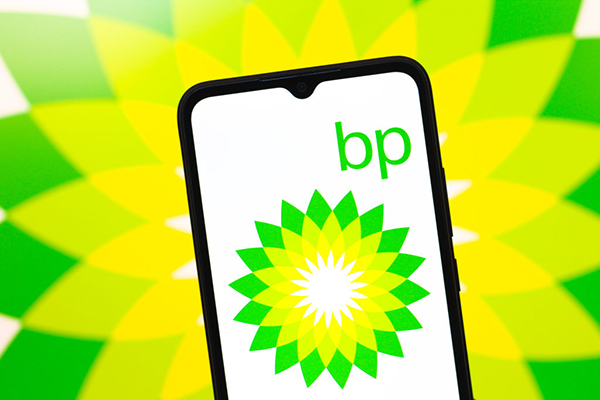ii view: BP strategy gathers momentum
Three-quarters into a 12-quarter strategy plan and with the shares rising in line with rival Shell so far in 2025. Buy, sell, or hold?
4th November 2025 11:11
by Keith Bowman from interactive investor

Third-quarter results to 30 September
- Underlying replacement cost profit down 3% from a year ago to $2.21 billion (£1.68 billion)
- Quarterly dividend payment unchanged from Q2 at 8.32 US cents per share
- Maintaining a quarterly share buyback programme of $750 million
- Net debt up 7% from a year ago to $26 billion (£19.8 billion)
Guidance:
- Now expects underlying upstream production to be broadly flat compared to 2024
- Now expects business sale and other proceeds of more than $4 billion in 2025, up from a previous $3-to-$4 billion estimate
- Targeting net debt of between $14 billion and $18 billion by the end of 2027
Chief executive Murray Auchincloss said:
"We’ve delivered another quarter of good performance across the business with operations continuing to run well.
“We continue to make good progress to cut costs, strengthen our balance sheet and increase cash flow and returns. We are looking to accelerate delivery of our plans, including undertaking a thorough review of our portfolio to drive simplification and targeting further improvements in cost performance and efficiency. There is much more to do but we are moving at pace, and demonstrating that bp can and will do better for our investors."
- Our Services: SIPP Account | Stocks & Shares ISA | See all Investment Accounts
ii round-up:
Energy giant BP (LSE:BP.) today detailed profits marginally ahead of City forecasts, aided by increased production and improved refining efficiency.
Third-quarter adjusted profits of $2.21 billion were broadly flat compared to both the prior second quarter and the same quarter last year. Analysts had expected an outcome nearer to $1.98 billion.
Shares in the FTSE 100 company rose 0.5% in UK trading having come into these latest results up 14% so far in 2025. That’s similar to the FTSE 100 and rival Shell (LSE:SHEL) but in contrast to a 14% fall for the price of Brent crude year-to-date.
BP operates across three divisions. Oil production and operations cover the core hydrocarbons or oil; Customer and products bring together Castrol lubricants, aviation fuelling and retail forecourt outlets; gas and low carbon production are combined in a third division.
Six major projects have been started, with 12 exploration discoveries made year-to-date. A share buyback programme of $750 million for the quarter ahead is unchanged, with a dividend of 8.32 US cents per share also staying the same.
Group net debt of $26 billion remained similar to the prior second quarter, but increased 7% from a year ago.
Management expectations for business sale and other proceeds for the current fiscal year were raised to more than $4 billion, up from a previous $3-4 billion estimate.
BP only yesterday confirmed the sale of US shale assets for $1.5 billion. The dividend of 8.32 US cents is payable to eligible shareholders on 19 December.
A fourth-quarter trading update is likely to be announced mid-January.
ii view:
Started in 1908, BP today operates in more than 60 countries with most of its exploration and production coming from the US, North Africa, the Middle East and Latin America. Oil production and operations generate most profits at close to half, followed by gas and low carbon at around a third and customer and products the balance of almost a fifth.
For investors, a changed strategy and an emphasis to reduce net debt under CEO Murray Auchincloss now sees share buybacks halved to $750 million from $1.5 billion. A refocus back toward fossil fuels is unlikely to please all investors given ongoing climate change concerns. Worries about reduced energy demand given less cooperative global trade policy persist, while valuation multiples above the three-year average may suggest the shares are not obviously cheap.
- 10 hottest ISA shares, funds and trusts: week ended 31 October 2025
- ii view: why Glencore shares just rallied to 9-month high
- China’s flying: should you go all in or invest across emerging markets?
To the upside, improved exploration success is evident, helped by improved seismic quality and subsurface visualisation technology. Disposals, such as US shale assets and a potential sale of the Castrol business will help lower net debt to a targeted $14-18 billion by the end of 2027. Cost savings have and are still being targeted, while shareholder returns remain important given a near-term focus on the dividend and policy to increase payment by at least 4% a year.
In all, and while BP continues to reshape the business in a drive to lower debt and improve efficiency, a forecast dividend yield of over 5% is likely to see income orientated investors remain loyal.
Positives:
- Diversity of operations
- Pursuing cost savings
Negatives:
- Climate change concerns
- Uncertain economic outlook
The average rating of stock market analysts:
Strong hold
These articles are provided for information purposes only. Occasionally, an opinion about whether to buy or sell a specific investment may be provided by third parties. The content is not intended to be a personal recommendation to buy or sell any financial instrument or product, or to adopt any investment strategy as it is not provided based on an assessment of your investing knowledge and experience, your financial situation or your investment objectives. The value of your investments, and the income derived from them, may go down as well as up. You may not get back all the money that you invest. The investments referred to in this article may not be suitable for all investors, and if in doubt, an investor should seek advice from a qualified investment adviser.
Full performance can be found on the company or index summary page on the interactive investor website. Simply click on the company's or index name highlighted in the article.